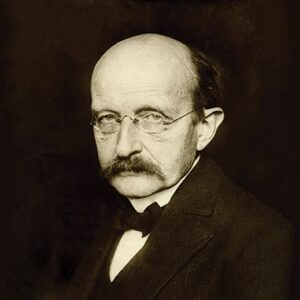Max Karl Ernst Ludwig Planck, or simply Max Planck, was a German scientist and theoretical physicist who, with his quantum theory of physics, revolutionized the study of physics in the late nineteenth century. Planck had a great talent for music as a student in school and could have pursued music as a career; however, he changed his mind later and chose to pursue physics. During his illustrious career, Planck held positions at the Universities of Munich, Berlin, and Kiel, as well as collaborating with some of the world’s leading scientists. Planck’s greatest contribution to physics was the introduction of quantum physics as a distinct branch of physics in the late nineteenth century; for his quantum theory, he was awarded the Nobel Prize in Physics in 1918. With the establishment of the Physical Societies of Germany, Planck was also instrumental in bringing together all of Germany’s various physics societies under one roof, resulting in greater collaboration among physicists.
Childhood and Adolescence
Max Karl Ernst Ludwig Planck was born in Kiel, Duchy of Holstein, on April 23, 1858. Johann Julius Wilhelm Planck, his father, was a law professor, and Emma Patzig, his mother, was his father’s second wife.
In 1867, Planck’s family of eight, which included Max Planck’s five other siblings, settled in Munich. Planck enrolled at the Maximilians Gymnasium School in Munich, where he was tutored in mathematics, astronomy, and physics by Hermann Muller, a mathematician. He finished high school at the age of seventeen.
Despite the fact that Planck was a gifted musician who had a lifelong passion for music, he chose not to pursue a career in music because he was equally enthralled by the subject of physics. Max Planck enrolled at the University of Munich in 1874 to pursue a degree in physics.
In 1877, Planck spent a year at the University of Berlin, which was known to be the haunt of eminent physicists such as Hermann von Helmholtz and Gustav Kirchoff. But what he saw did not impress him. He returned to Munich the following year and received his doctorate in 1879, at the age of 21, for a thesis on the second law of thermodynamics.
Max Planck’s career began in 1880, when he submitted his habilitation thesis at the University of Munich and was hired as a physics lecturer. He was appointed as an associate professor at the University of Kiel in 1885.
Following the death of Gustav Kirchhoff, a position at the University of Berlin became vacant in 1889, and Max Planck was invited to fill it. Planck was promoted to full professor in 1892, and he remained in Berlin until the end of his career.
In 1894, Max Planck began working on black body radiation at the request of companies that wanted to make light bulbs that produced a lot of light but didn’t use a lot of electricity. Planck developed the Planck black-body radiation law six years after beginning work on the project, after a period of doubt and frustration when the work could not be completed.
Planck went through several approaches in his quest to prove the Planck black-body radiation law, eventually settling on one that could be considered the first time the concept of quantum physics was proposed. It was a radical departure from previous physics research, and his ideas on quantum theory were published in two books: ‘Thermodynamics’ in 1897 and ‘Theory of Heat Radiation’ in 1906. For pioneering this branch of physics, he received the Nobel Prize in Physics.
Max Planck wanted to bring all of the physical societies in his native Germany under one roof after being appointed as a professor at the University of Berlin, and it was because of him that the Physical Societies of Germany was founded in 1898. Later on, Planck served as the society’s President for four years.
Max Planck retired from the University of Berlin in 1928, and the rise of the Nazis under Adolf Hitler made his later years largely unhappy. Despite the fact that he disagreed with the Nazis’ philosophy, he chose to remain in Germany and encouraged other scientists to do the same.
Major Projects of Max
Max Planck is without a doubt one of the greatest physicists of all time, and his most important work has to be the shaky research on quantum physics that he conducted, which opened up an entirely new branch of study in the subject.
Achievements & Awards
In 1918, Max Planck was awarded the Nobel Prize in Physics for founding a new branch of physics research.
In 1927, he received the Lorentz Medal, and in 1929, the Copley Medal.
Personal History and Legacy
In 1887, Max Planck married Marie Merck, and the couple had four children. Marie passed away in 1909.
Planck married Marga von Hoesslin in 1911 and they had a son. Max Planck died on October 4, 1947, in Gottingen, at the age of 89.
Estimated Net Worth
The net worth or income of Max Planck is estimated to be between $1 million and $5 million dollars. From his primary career as a physicist, he has amassed a substantial fortune.


